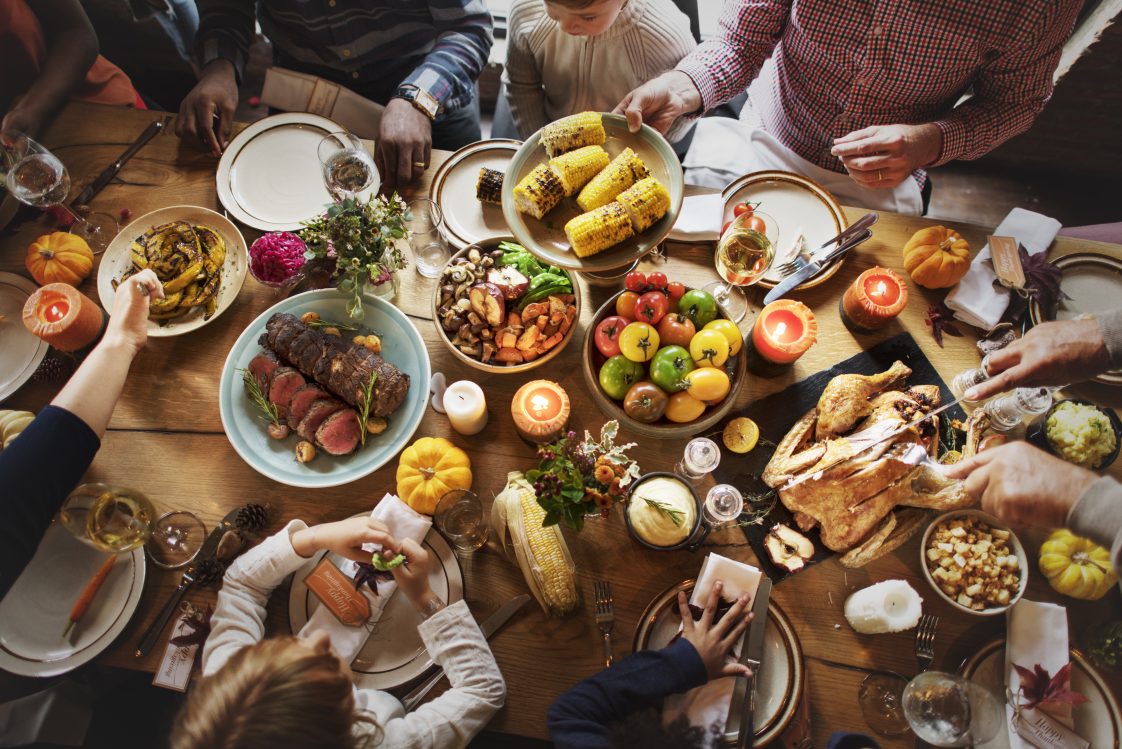Food Safety

AUBURN UNIVERSITY, Ala. — Preparing a holiday meal can be hectic. Remembering to check the turkey, make the gravy and cook all of the fixings is enough to exhaust even the best hosts. Even after the meal is over and the dishes hit the sink, the job is still not finished. Proper food safety — before, during and after making the meal — is important. According to Alabama Cooperative Extension System experts, food safety can be the difference between having and not having a critical health issue.
Food Safety Basics
To stop holiday leftovers from spoiling, freezing foods is a safe and easy way to save money and stretch the longevity of food. Macon County Extension Coordinator Janice Hall said everyone needs to know the basics of why utilizing freezing is an effective option.
“Freezing foods stops any bacteria from growing and possibly spoiling foods,” Hall said. “For example, ground beef stored in the refrigerator can last for about two to three days before it begins to show signs of spoilage. If you freeze the same ground beef, it will last in the freezer for up to three months.”
Ultimately, the primary difference between sticking leftovers in the refrigerator or the freezer is the rate at which bacteria grows. A food’s shelf life goes into account when deciding which compartment to place extra food in this holiday season.
Dodging Danger
Not taking food safety seriously dramatically increases the risk of foodborne illness. Avoiding what Hall calls the danger zone is the best way to monitor food safety. This zone is when food measures between 41 and 135 degrees Fahrenheit for longer periods of time. Yes, you may now imagine past holiday spreads that fell into this zone.
“Do not put hot food in the refrigerator to cool,” Hall said. “Bacteria can grow on warm foods kept in the danger zone for more than two hours. Also, putting hot foods in the refrigerator can warm the inside temperatures, exposing other food to dangerous danger-zone temperature levels.”
When thawing meat, allow 24 hours for every five pounds. For example, a 15-pound turkey should take three days to thaw. Avoid thawing meat at room temperature (on the counter, outdoors or in the sink), as bacteria can grow and double every 20 minutes — possibly resulting in someone getting sick.
This danger should not only apply during a time of gathering. Foodborne illness knows no calendar. Safety measures apply 365 days per year. Whether it’s at a tailgate or a birthday party, make sure to monitor food temperatures closely.
Stay Frosty
Using and labeling freezer-approved bags and containers is the best choice when freezing food.
“Labeling helps give the food handler an idea of what the food is, how long it has been in the freezer and whether it is time to discard,” Hall said.
The freeze label should include the name of the food as well as the packaging date before placing in the freezer. By referring to the label, there is no question of how much time is left before the food will last for quality purposes.
Hall said everyone should remember the acronym, FIFO (first in, first out). This method allows for the old foods in the freezer to exit first. Performing this technique will prevent foods from being stored beyond their recommended quality date. Most people have experienced a long-lost container in the freezer that accumulates freezer burn. This state occurs when air reaches food, giving it an unpleasant appearance.
“Foods stored beyond the quality dates are still safe to eat, however, they may have off flavors and colors,” Hall said.
Beating the Clock
Once the feast is over, the clock begins to tick for storing leftovers. Hall said there is a rule-of-thumb time frame for keeping foods in the refrigerator.
“Consume all holiday leftovers within three to four days of preparation,” Hall said. “Any leftovers that may not be used can be frozen before this time frame and consumed within six months for quality purposes.”
For larger items, such as whole turkeys or hams, remove the meat off of the bones and divide it into small portions. Before storing, wait for the meat to properly cool. To expedite the process, proteins may be placed in containers (stainless steel works best for conduction) and into an ice slurry. This makeshift refrigerating system will cool meat faster in the short term. Occasionally, mix the colder pieces in with the warmer pieces to evenly distribute the temperature.
Not Quitting Cold Turkey
Share these freezing and refrigerating tips with family and friends to save money and make sure nobody is subject to foodborne illness this holiday season. To learn more about food safety, visit the Food Safety section of the Alabama Extension website at www.aces.edu.

